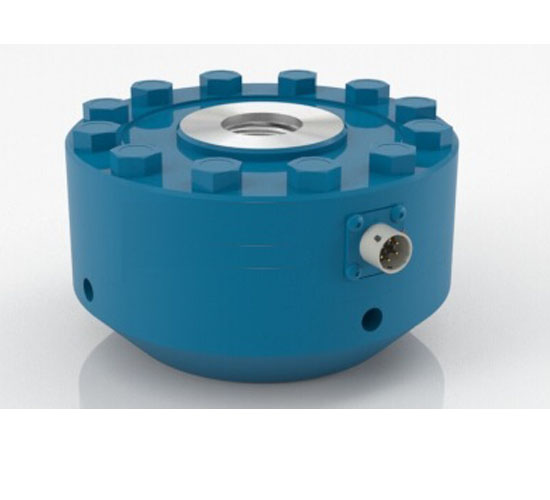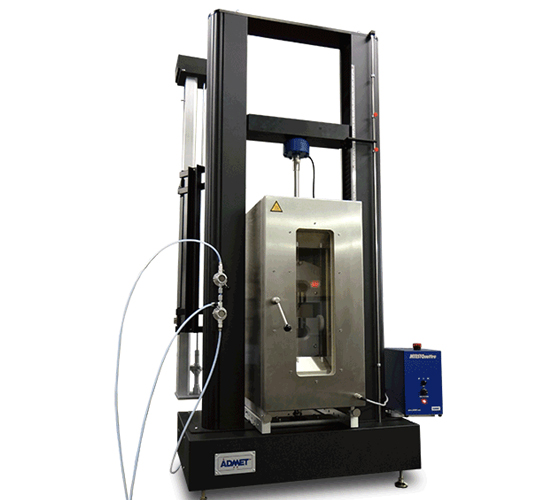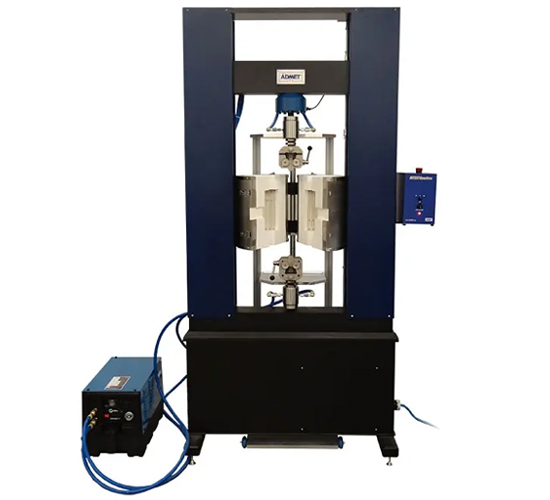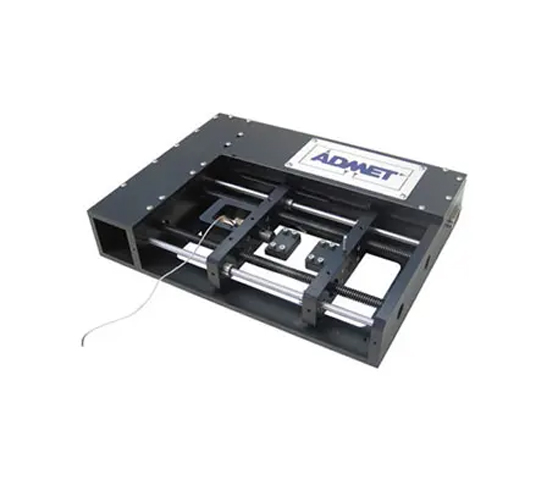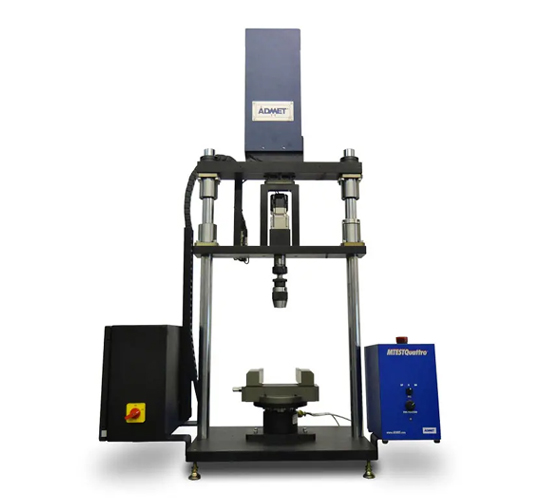Strain Gauged Load Cells Applications
Strain Gauged Load Cells are highly precise and reliable instruments used to measure force, load, or weight in various testing environments, particularly in Universal Testing Machines (UTMs). These load cells are equipped with strain gauges to provide accurate measurements of force during mechanical testing, ensuring consistent and repeatable results. Here are the key applications of Strain Gauged Load Cells:
Applications:
Tensile Testing: Strain Gauged Load Cells are commonly used in tensile testing to measure the force applied to materials as they are stretched. These load cells are ideal for testing a wide range of materials such as metals, plastics, rubber, and fibers, providing accurate force data to assess tensile strength.
Compression Testing: These load cells are frequently used in compression testing setups to measure the force exerted on specimens when they are compressed. They are particularly useful for testing materials like foams, plastics, and building materials to determine their compressive strength and behavior under stress.
Shear Testing: Strain Gauged Load Cells are also applied in shear testing to measure the force exerted on specimens as forces are applied parallel to the material surface. This is important for testing adhesives, films, and coatings for their shear strength.
Peel and Tear Testing: These load cells are used to measure the force in peel and tear tests, where forces are applied to test the adhesion strength or tear resistance of materials like adhesives, films, and textiles.
Fatigue Testing: Strain gauged load cells are utilized in fatigue testing to measure the cyclic forces applied to specimens over repeated loading and unloading cycles. This helps evaluate the durability and longevity of materials used in various industries.
Dynamic Testing: Strain Gauged Load Cells are used in dynamic testing to measure fluctuating loads during real-world conditions, such as vibrations or impact forces. These load cells provide high precision for testing materials and components subjected to dynamic loading conditions.
Wire and Cable Testing: Used for measuring force during tensile, elongation, and compression tests of wires and cables, these load cells are essential for assessing the strength and durability of electrical components under stress.
Biomedical and Medical Device Testing: Strain gauged load cells are crucial in testing medical devices and implants, where precise measurement of force is required to simulate real-world usage conditions, such as stress or fatigue testing of implants, prosthetics, and biomaterials.
Packaging Material Testing: These load cells are applied to test packaging materials for their strength, durability, and resistance to force in different conditions, such as tensile, compression, and tear testing of films, foils, and papers used in packaging.
Material Testing for Aerospace and Automotive Industries: Strain gauged load cells are widely used to measure forces applied to materials in the aerospace and automotive industries, such as testing components like composites, metals, and plastics for strength, fatigue resistance, and performance under extreme conditions.
Construction and Building Materials Testing: ADMET Strain Gauged Load Cells are used in testing materials like concrete, brick, and wood, measuring the force required to determine their compressive, tensile, and flexural strength in construction applications.
Advantages of ADMET Strain Gauged Load Cells:
High Precision: Strain gauged load cells provide highly accurate and reliable measurements of force, ensuring consistent and repeatable results in testing.
Wide Range of Applications: These load cells are suitable for a variety of testing applications, from tensile and compression tests to dynamic and fatigue testing, making them a versatile choice for laboratories.
Durability: Built with high-quality materials, ADMET Strain Gauged Load Cells are designed to withstand harsh testing conditions while maintaining performance over time.
Real-time Monitoring: These load cells offer real-time force measurement, allowing for immediate analysis and feedback during testing.
Cost-Effective: ADMET Strain Gauged Load Cells provide an affordable solution for accurate force measurement, making them ideal for laboratories and industries that require precise testing without the need for expensive equipment.
Industry Applications:
Material Science and Research: Used extensively in material science research to test the strength, durability, and performance of new materials under different forces.
Automotive Industry: Applied in automotive testing to measure the force applied to components, ensuring they meet safety and performance standards.
Aerospace Industry: These load cells are used to test materials and components in aerospace applications, measuring forces on materials like composites and metals to ensure strength, fatigue resistance, and durability.
Packaging Industry: ADMET Strain Gauged Load Cells are crucial in testing packaging materials to assess their strength and performance in handling and transportation.
Consumer Goods and Electronics: These load cells are used to test materials and components in consumer electronics, ensuring that they perform reliably under varying force conditions.
Medical Devices and Biomaterials: Essential for testing medical devices, implants, and biomaterials to ensure that they meet the required strength and performance standards for patient safety.
Construction and Building Materials: ADMET Strain Gauged Load Cells are used in the construction industry to test materials like concrete, brick, and wood, ensuring their performance in structural applications.
ADMET Strain Gauged Load Cells are indispensable tools in testing laboratories and manufacturing settings where accurate force measurement is critical. Their versatility, precision, and durability make them ideal for a wide range of applications across various industries, ensuring reliable and consistent results.

